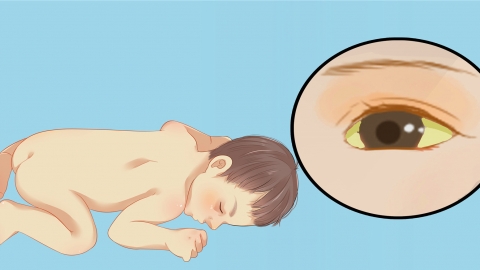What is neonatal jaundice?
Neonatal jaundice may be caused by characteristics of bilirubin metabolism, improper breastfeeding, hemolytic disease of the newborn, infections, biliary atresia, and other factors. If abnormalities occur, timely medical attention is recommended. Detailed explanations are as follows:

1. Characteristics of bilirubin metabolism: Neonates have shorter red blood cell lifespans and immature hepatic enzyme systems, resulting in weak bilirubin metabolism capacity, which can easily lead to jaundice. It is recommended to increase feeding frequency to promote defecation and help eliminate bilirubin; most cases resolve spontaneously.
2. Improper breastfeeding: Inadequate breastfeeding reduces infant bowel movements, increasing enterohepatic circulation of bilirubin and causing jaundice. Sufficient breastfeeding should be ensured, and formula milk may be added when necessary to guarantee adequate milk intake and promote bilirubin excretion.
3. Hemolytic disease of the newborn: Maternal-fetal blood type incompatibility triggers immune reactions, leading to massive red blood cell destruction and a rapid rise in bilirubin levels, causing jaundice. This is often accompanied by symptoms such as anemia and hepatosplenomegaly. Treatments mainly include medications such as human albumin injection, intravenous immunoglobulin (pH4), and phenobarbital tablets as directed by a physician. Blood exchange therapy may be required in severe cases.
4. Infections: Bacterial or viral infections in infants, such as sepsis or cytomegalovirus infection, can impair liver function and lead to bilirubin metabolism disorders, causing jaundice. Symptoms often include fever, poor feeding, and lethargy. Doctors generally recommend medications such as penicillin sodium for injection, cefotaxime sodium for injection, and ganciclovir injection to alleviate symptoms.
5. Biliary atresia: Abnormal development of the bile ducts obstructs bile excretion, causing bilirubin to reflux into the bloodstream and resulting in jaundice. This is often accompanied by symptoms such as pale stools and darkened urine. Early surgical intervention is recommended under medical guidance, and medications such as ursodeoxycholic acid capsules and compound glycyrrhizinic acid injection may be used postoperatively for adjunctive treatment.
In daily life, closely monitor changes in the infant's skin jaundice, regularly check bilirubin levels, and ensure adequate feeding. If jaundice persists or is accompanied by other abnormal symptoms, seek timely medical attention to identify the cause and implement targeted treatment.






